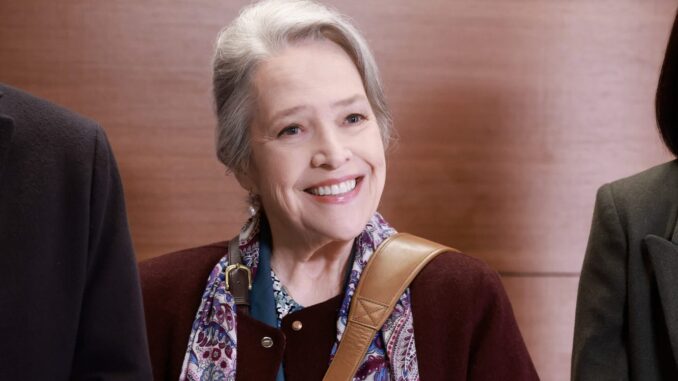
The amber glow of a living room lamp, the comforting hum of a television set, and the folksy drawl of Andy Griffith as Ben Matlock – for many, this was the quintessential Sunday evening. Matlock, with its predictable yet satisfying rhythm of courtroom drama and small-town charm, was a world built on familiar comforts. It was precisely this gentle, well-worn landscape that made the arrival and subsequent triumph of Kathy Bates a seismic event, an artistic redefinition that critics would laud as her “best TV role yet.”
Kathy Bates, even before her monumental film success, was a force of nature. Her stage work had already showcased an intensity, a raw vulnerability, and an unparalleled ability to imbue even the most secondary characters with a lived-in authenticity. She wasn’t an ingenue; she was a craftsman, digging deep into the marrow of human experience. So, the idea of this powerhouse actress, known for her dramatic weight and often abrasive characters, stepping into the placid waters of a procedural like Matlock might have initially seemed incongruous, like a jolt of lightning striking a warm, fuzzy blanket.
Yet, that was precisely the genius of it. When Bates graced the Matlock screen, she didn’t just guest star; she inhabited the roles she played, transforming what could have been a stock character into a compelling, unforgettable figure. Imagine her as a wronged wife, her eyes holding decades of quiet resentment, her voice a tremor of suppressed fury, threatening to crack the show’s veneer of genteel justice. Or perhaps a fiercely protective mother, whose love bordered on obsession, making the audience question where the lines of right and wrong truly lay. She didn’t shout; she simmered. She didn’t monologue; she revealed volumes with a single, weighted glance.
What Bates brought to Matlock was an astonishing realism, a refusal to play down to the medium or the genre. In a show where villains often felt like archetypes and victims like plot devices, Bates’s characters felt like real people – flawed, complex, and utterly human. She stripped away the easy labels, exposing the raw nerves and desperate motivations beneath. She could be terrifying in her conviction, heartbreaking in her despair, and utterly captivating in her defiance. The air seemed to thicken when she entered a scene; the stakes felt undeniably higher. Suddenly, the courtroom wasn’t just a stage for legal theatrics, but a crucible for genuine human drama.
This commitment, this unyielding integrity to her craft, did not go unnoticed. The “big win” for Kathy Bates wasn’t just a physical award, though it surely included accolades and nominations; it was the resounding chorus of critical approval that affirmed what discerning viewers already knew. Critics, often dismissive of network procedurals, singled out her performances as transcendent. “Her best TV role yet” wasn’t hyperbole; it was an acknowledgment that in a landscape often defined by broader strokes, Bates had painted a masterpiece in miniature. She proved that the canvas didn’t dictate the art; the artist did.
Her success on Matlock wasn’t merely a personal triumph; it was a testament to the power of extraordinary acting to elevate any material. It shattered the perceived hierarchy between film and television, demonstrating that profound, impactful performances could, and often did, grace the small screen. Kathy Bates didn’t just win big; she showed us all that even in the most familiar settings, true talent can always find a way to surprise, to challenge, and to ultimately redefine the boundaries of what is possible. Her indelible mark on Matlock remains a shining example of an actor’s ability to turn a role into a legend, reminding us that sometimes, the most unexpected pairings yield the most remarkable art.
